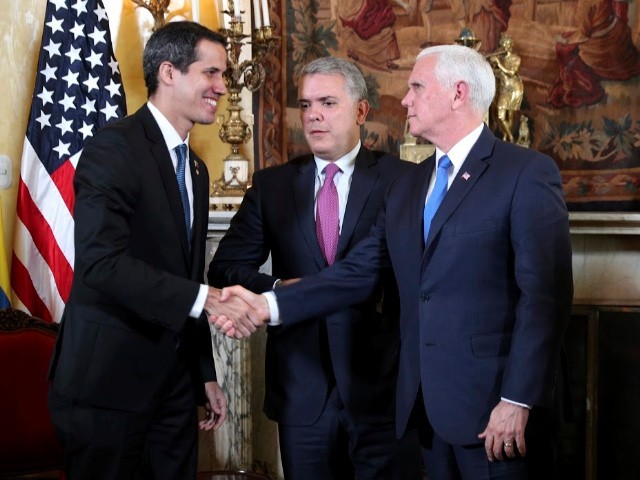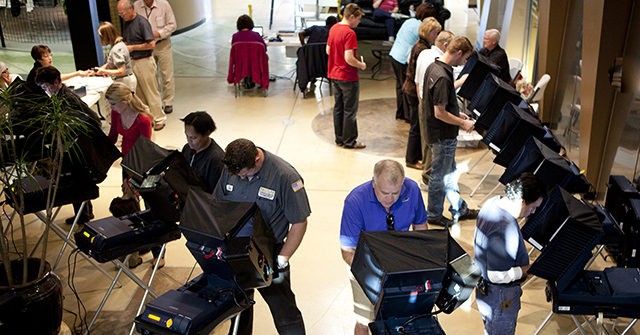As Memorial Day unfolds around us, we pause to remember those who served on foreign soil in times of war and fell for us, to preserve our freedom and America’s timeless values. The day offers a welcome pause from the hubbub, lesser issues, social fatigue, and the din of less noble clashes. Americans, coast to coast, honor our past and commit ourselves to be equal to our time.
Perhaps this Memorial Day, we can also think forward — as well as backward. The suggestion is not about war or politics, but about healing wounds and making possible better futures for the families of those who “gave their last full measure” for us.
Specifically, while much is being done to advance prosthetics, treat visible and invisible wounds, and innovate at the Veterans Administration, thousands of families live with a harsh reality: a missing a spouse or parent who died in combat.
At the federal and state levels, benefits exist for these families, but they often fall short of what is needed. If nothing replaces such a loss, assuring an opportunity to succeed for children of a deceased combat veteran is a start. Education is critical.
Unfortunately, many states do not provide full college educational support to children of deceased combat veterans, which raises two questions. Can we do more at the state level? And if states find covering expenses difficult, is there a larger federal role?
Certainly, states can do more — and should by supporting strong students at public and private institutions if these students can make the grade. Often, these students have had to overcome greater adversity than most, benefited from less opportunity, and come from more limited means than the average. If they have the heart to achieve, they should be given every chance to do so.
More immediately, federal adjustments have reduced tuition aid for children of the fallen from 45 months to 36 months. While helpful, more could be done. Aspiring four-year college students, coming from families of deceased combat veterans, should be given the full time. Free post-secondary education for everyone may be a “bridge too far,” but on Memorial Day, maybe we agree to do better for children of deceased combat veterans.
On Memorial Day, we recall that our own future is made better because of what their parents did for us. Accordingly, their futures should be made better by what we can do for them. At the state and federal levels, a “Gold Star Family Bill” should be promoted to assure full tuition, room, board, and educational support for surviving children at any college to which they are admitted, and for the duration of their degree, not three years if admitted for four.
The idea of reviewing these family benefits is timely, as college tuition costs are high, educational debt difficult to retire, and number of surviving children — as we move into our 18th consecutive year of war — at historic levels.
At the federal and state levels — and as individuals — we owe a debt to deceased and disabled combat veterans with children. We owe it not only to the fallen, but to their families — spouses, children, parents, siblings, even grandparents. Too often, these families are lost in the mix, weighed down by educational, medical, and mundane bureaucracy, not so much neglected as unintentionally forgotten. It is time to remember.
Memorial Day is for remembering those who have fallen. We honor them with words, prayers, greater patience for each other, deeper thought, and the echo of Taps. But this day is more. It is a reminder of intergenerational debts, including to Americans whose parent did not come home.
The children of fallen combat veterans, indeed all the dependents of those who die for us, deserve more national attention — educational, medical, employment, and cultural care. We are not empowered to rewrite history, but we can help make the future better — for this group of Americans. Memorial Day is as good a time to start as any.
Perry Gershon is widely recognized business leader and national commentator on business, trade, policy, and politics. A congressional candidate for New York’s first district, he holds a B.A. from Yale and an MBA from the University of California.
Image: Jeff Turner via Flickr.
As Memorial Day unfolds around us, we pause to remember those who served on foreign soil in times of war and fell for us, to preserve our freedom and America’s timeless values. The day offers a welcome pause from the hubbub, lesser issues, social fatigue, and the din of less noble clashes. Americans, coast to coast, honor our past and commit ourselves to be equal to our time.
Perhaps this Memorial Day, we can also think forward — as well as backward. The suggestion is not about war or politics, but about healing wounds and making possible better futures for the families of those who “gave their last full measure” for us.
Specifically, while much is being done to advance prosthetics, treat visible and invisible wounds, and innovate at the Veterans Administration, thousands of families live with a harsh reality: a missing a spouse or parent who died in combat.
At the federal and state levels, benefits exist for these families, but they often fall short of what is needed. If nothing replaces such a loss, assuring an opportunity to succeed for children of a deceased combat veteran is a start. Education is critical.
Unfortunately, many states do not provide full college educational support to children of deceased combat veterans, which raises two questions. Can we do more at the state level? And if states find covering expenses difficult, is there a larger federal role?
Certainly, states can do more — and should by supporting strong students at public and private institutions if these students can make the grade. Often, these students have had to overcome greater adversity than most, benefited from less opportunity, and come from more limited means than the average. If they have the heart to achieve, they should be given every chance to do so.
More immediately, federal adjustments have reduced tuition aid for children of the fallen from 45 months to 36 months. While helpful, more could be done. Aspiring four-year college students, coming from families of deceased combat veterans, should be given the full time. Free post-secondary education for everyone may be a “bridge too far,” but on Memorial Day, maybe we agree to do better for children of deceased combat veterans.
On Memorial Day, we recall that our own future is made better because of what their parents did for us. Accordingly, their futures should be made better by what we can do for them. At the state and federal levels, a “Gold Star Family Bill” should be promoted to assure full tuition, room, board, and educational support for surviving children at any college to which they are admitted, and for the duration of their degree, not three years if admitted for four.
The idea of reviewing these family benefits is timely, as college tuition costs are high, educational debt difficult to retire, and number of surviving children — as we move into our 18th consecutive year of war — at historic levels.
At the federal and state levels — and as individuals — we owe a debt to deceased and disabled combat veterans with children. We owe it not only to the fallen, but to their families — spouses, children, parents, siblings, even grandparents. Too often, these families are lost in the mix, weighed down by educational, medical, and mundane bureaucracy, not so much neglected as unintentionally forgotten. It is time to remember.
Memorial Day is for remembering those who have fallen. We honor them with words, prayers, greater patience for each other, deeper thought, and the echo of Taps. But this day is more. It is a reminder of intergenerational debts, including to Americans whose parent did not come home.
The children of fallen combat veterans, indeed all the dependents of those who die for us, deserve more national attention — educational, medical, employment, and cultural care. We are not empowered to rewrite history, but we can help make the future better — for this group of Americans. Memorial Day is as good a time to start as any.
Perry Gershon is widely recognized business leader and national commentator on business, trade, policy, and politics. A congressional candidate for New York’s first district, he holds a B.A. from Yale and an MBA from the University of California.
Image: Jeff Turner via Flickr.






 The second USS Jacob Jones (DD-130), was given the Jacob Jones ship name while still being constructed in February 1918 in honor of the destroyer that had been lost just three months earlier. On Feb. 28, 1942, while cruising off Cape May, New Jersey she was hit by two torpedoes, fired by the U-578. Only 12 crewmen survived out of the 113 seamen and officers. What both these sinkings should emphasize is that the men lost are not numbers but fathers, husbands, and sons.
The second USS Jacob Jones (DD-130), was given the Jacob Jones ship name while still being constructed in February 1918 in honor of the destroyer that had been lost just three months earlier. On Feb. 28, 1942, while cruising off Cape May, New Jersey she was hit by two torpedoes, fired by the U-578. Only 12 crewmen survived out of the 113 seamen and officers. What both these sinkings should emphasize is that the men lost are not numbers but fathers, husbands, and sons.
